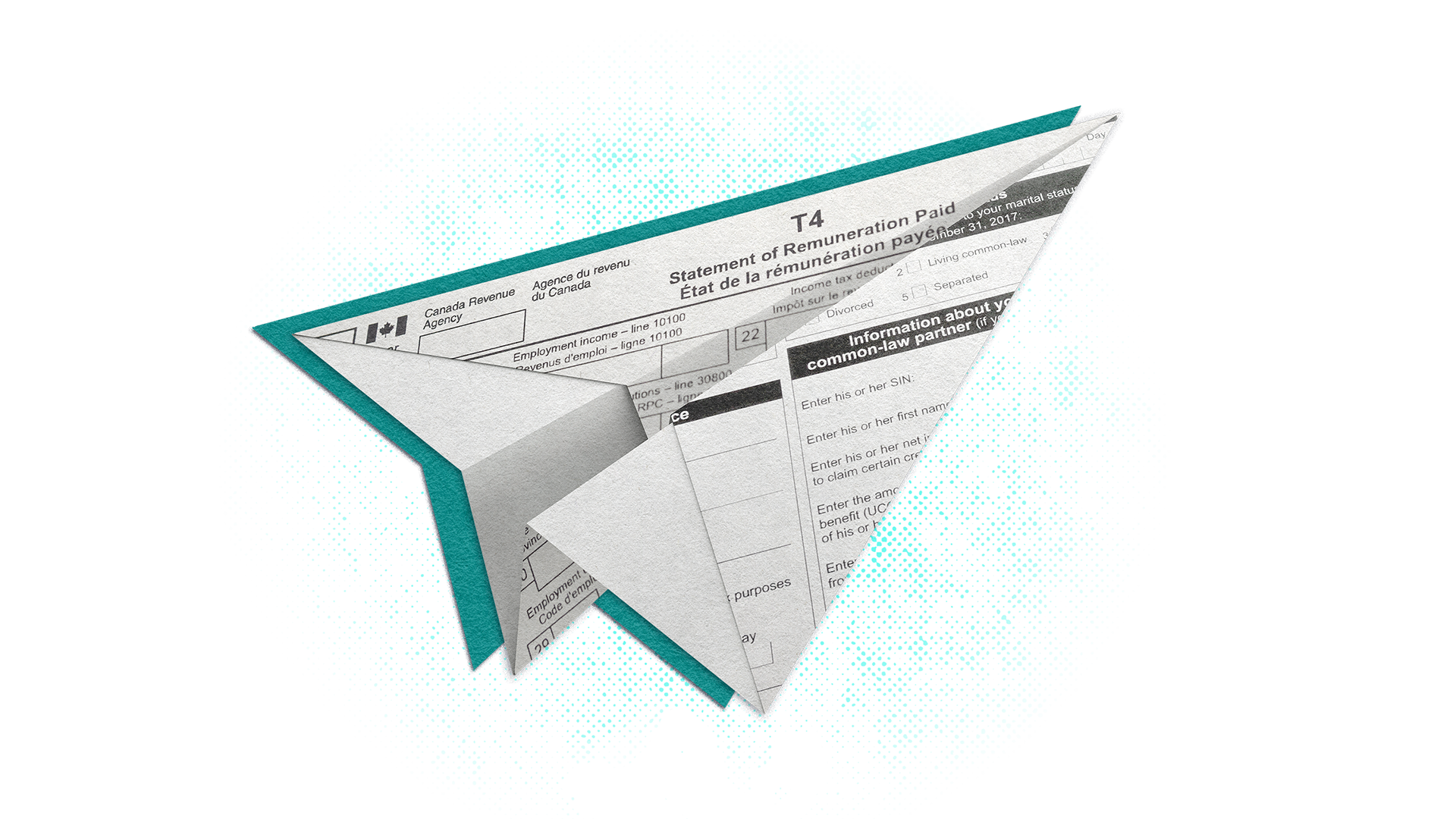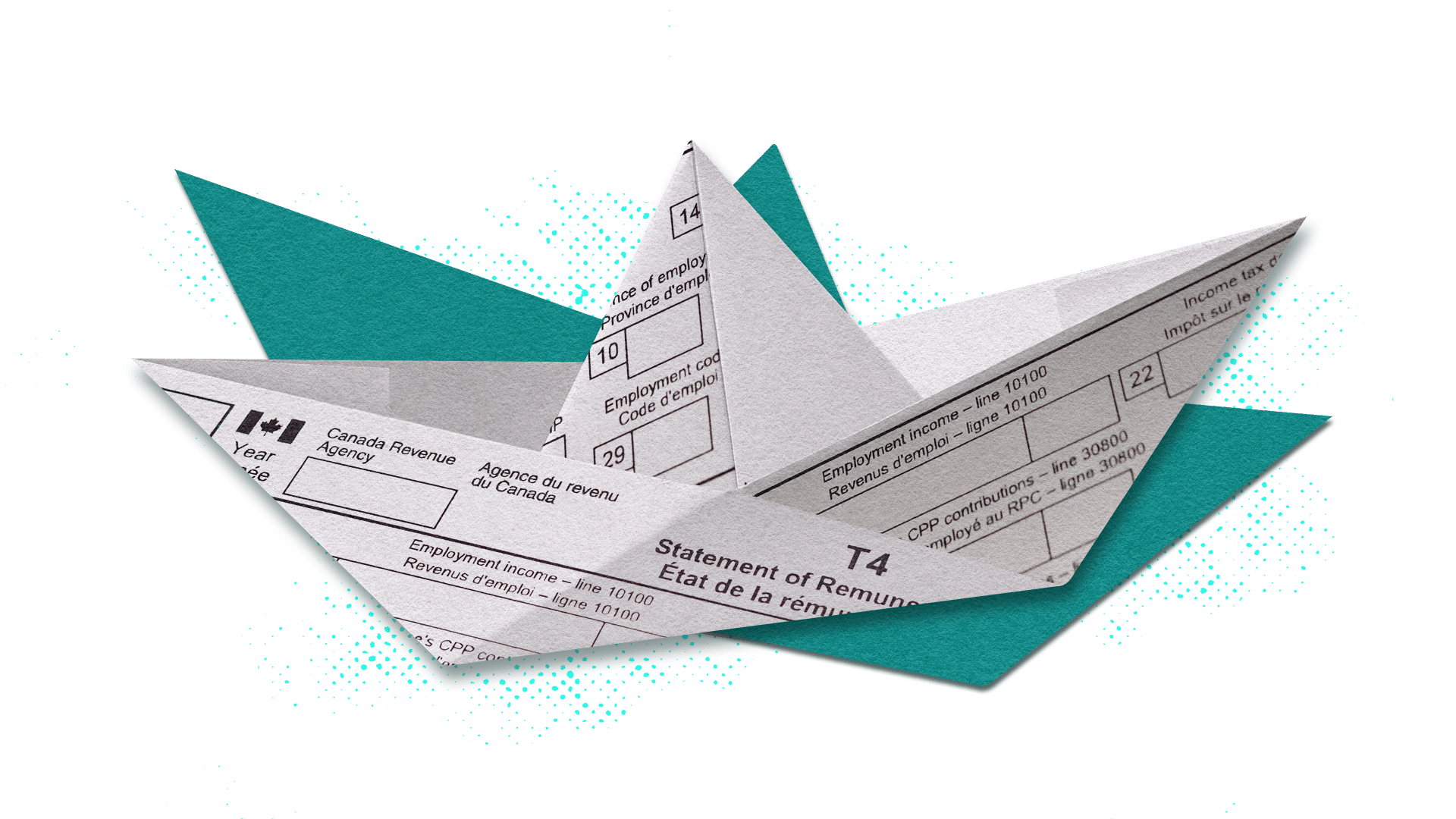The new year can bring a desire to build new habits, from health goals to money management. Could this be the year to implement a new tax filing strategy? The Canada Revenue Agency (CRA) will accept your income tax return as early as February 19. Why wait until the last week of April when you can get ahead of the pack by sending your return in before spring arrives?
The depths of winter can be an excellent time to prepare for the 2024 tax season and consider your tax refund. It is, after all, the most exciting part of this whole ordeal, and it could mean a significant chunk of change finds its way back into your pocket. Over 18 million Canadians received a tax refund in 2023, with the average cheque made out for a cool $2,262. That’s enough for a short holiday, a month or two of groceries, a new computer or even — table-top drum roll please — a boost to your investment portfolio. Your tax refund is yours to spend however you’d like.
Of course, you want your tax refund to be as big as it can be. This year’s list of credits and deductions includes goodies for first-time home buyers, students, news junkies and more.
Now here are some of this year’s tax ideas you might want to know about. Don’t know the difference between a deduction and a credit? No worries. Tax deductions reduce your taxable income, while tax credits get subtracted from the amount of tax payable on your taxable income. To learn more about taxes and how to build a tax strategy, visit the TD Direct Investing Tax Centre.
Tax credits in Canada
First-Time Home Buyers’ Tax Credit
If you purchased your first home in 2023 (congratulations, by the way!), you may be eligible for the First-Time Home Buyers’ Tax Credit. Your purchase is eligible provided you (or your spouse or common-law partner) acquired the home in the relevant tax year and did not live in another home you owned in any of the four preceding years. Bear in mind: If the home was a joint purchase, a couple can share the tax credit, but the total credit cannot exceed $10,000.
Who is eligible: First-time home buyers (as defined under the Income Tax Act in Canada)
How much you can claim: Up to $10,000 of the purchase price, with potential tax savings of up to $1,500
Multigenerational Home Renovation Tax Credit
Did you modify your home this year to facilitate an older parent living with you? Multigenerational households in Canada increased by 50% between 2001 and 2021. The Multigenerational Home Renovation Tax Credit (MHRTC) took effect in 2023. This credit permits you to claim 15% of the value of your renovations up to $50,000 of qualifying expenses.
Who is eligible: You must be renovating your home in order to create a self-contained secondary unit for an elderly relative 65 years of age or older, or a family member who qualifies for the Disability Tax Credit and is at least 18 before the renovation. See if you qualify here.
How much you can claim: Up to $7,500. If you spend less than $50,000 on the reno, the credit is 15% of qualifying expenditures
Digital News Subscription Tax Credit
Calling all news junkies — this one’s for you. The digital news subscription tax credit was introduced in 2021 to encourage citizens to support Canadian journalism. To qualify for the credit, the subscription must be in your name and provide access to predominantly written digital content. If more than one person is named as the subscriber — such as a couple — they can share the credit. You can claim this type of expense on Line 31350 of your T1 tax form. A complete list of eligible news organizations can be found on the CRA’s website.
Who is eligible: Anyone who paid a digital subscription to a recognized Canadian journalism organization in 2023
How much you can claim: Up to $500
Canada Training Credit
If you completed a course at a Canadian post-secondary institution in 2023, you may qualify for the Canada Training Credit. You may also qualify if you wrote an occupational examination, provided it was required to obtain a professional status or license recognized by provincial or federal statute. Tuition and examination fees are not considered eligible if they were paid for or reimbursed by your employer or a government training program.
Who is eligible: Canadians at least 26 years old and less than 66 years old who took a licensing examination or a course at a Canadian post-secondary institution in 2023
How much you can claim: 50% of eligible tuition and training fees paid, up to the Canada Training Credit Limit shown on your latest notice of assessment
Federal Political Contribution Tax Credit
Did you know? Participating in our democracy can come with tax perks. If you donated to a federal political party in 2023, you may be eligible to claim the Federal Political Contribution Tax Credit. The credit is subject to specific limits and thresholds, and the amount you receive back may be affected if you also received (or expect to receive) any additional advantages for your contribution. For example, if you paid to attend a political party’s event, the entry fee may be claimed, but any gift bags or food provided could count as an advantage. Similar tax credits exist for provincial political party donations as well. Visit your province’s government website for more details.
Who is eligible: Canadians who donated to a federal political party in 2023
How much you can claim: The fair market value of your or your spouse’s contribution, up to certain limits. The maximum available credit is $650 for those who donated $1,275 or more
Medical Expense Tax Credit
Many medical expenses not covered under your provincial health care plan can be claimed under the Medical Expense Tax Credit, with some limitations. Eligible expenses include ambulatory services, laboratory services and laser eye surgery, among others. The complete list can be found here. Canadians can claim these expenses in any 12-month period ending in 2023 (so long as they weren’t claimed in 2022). For example, a claim between July 2022 and June 2023 is valid. Expenses that have been or will be reimbursed by a health coverage plan are not eligible.
Who is eligible: Canadians who paid for an eligible medical expense for themselves, their spouse or common-law partner
How much you can claim: A specific formula lays out how much you will actually receive
Tax deductions in Canada
First Home Savings Account
Introduced in 2023, the First Home Savings Account (FHSA) allows qualified individuals to build savings in a registered account specifically for the purchase of a home. From a tax perspective, the FHSA is treated in a way that is similar to a Registered Retirement Savings Plan (RRSP): Contributions up to the FHSA’s annual limit of $8,000 help to reduce your taxable income.
Who is eligible: Canadians aged 18 (or 19 if that is the age of majority in your province) to the end of the year in which you turn 71, provided you have not owned a home in the past four calendar years
How much can you claim: The FHSA allows holders to claim up to $8,000 per year, up to a contributed maximum of $40,000 in the lifetime of the account
Investment losses
If you experienced a capital loss in 2023, there might be a silver lining: You may be able to deduct that loss against your 2023 capital gains. A capital loss occurs when you sell a property asset for less than you paid for it (subject to certain adjustments). When your capital losses exceed your capital gains for the year, the excess can be carried back and deducted against any of the past three years’ capital gains, or carried forward indefinitely.
A variety of asset types can be considered capital property for tax purposes, but some of the most common include equity investments, debt securities and real estate. Sometimes known as tax-loss selling, this is a strategy many investors use to help offset capital gains. For the 2024 tax season, any losing investments would have to have been sold no later than December 27, 2023. There are also non-tax issues to consider with such transactions, and it can get a little complicated. If you have questions, it may be helpful to speak to a tax professional.
Who is eligible: Anyone who experienced a capital loss in 2023
How much you can claim: Any capital loss you incurred during the 2023 calendar year
Work from home expenses
Wondering about the work from home (WFH) tax deduction? The federal government introduced a streamlined tax deduction to calculate home office expenses in 2021 but it has since been eliminated. Although the flat-rate method of claiming WFH expenses no longer exists, if you continue to work from home for the majority of time, you may still qualify to deduct business related expenses.
Who is eligible: Canadian employees who work from home and have a signed Declaration of Conditions of Employment (Form T2200) from their employer
How much you can claim: No limit. But your costs cannot have been reimbursed by employer and expenses cannot exceed income
As you prepare your tax filing, don’t forget to review any provincial credits or deductions you may be eligible to receive as well. For more information about tax credits or deductions, including those listed here, visit the CRA’s website. If you’re looking for more information on how to help build a tax strategy that suits your needs, it may also be helpful to visit the TD Direct Investing Tax CentreTD Direct Investing Tax Centre.
FAQs
How do I get tax credit in Canada?
You can claim a variety of tax credits in Canada by filling out the required tax form for each credit. Learn more on the CRA website.
Is mortgage interest tax deductible in Canada?
No, mortgage interest for your principal residence is not tax deductible in Canada. If you hold U.S. property or Canadian rental property, your mortgage interest may be deductible under certain circumstances.
What is a tax deduction vs. tax credit?
Tax deductions in Canada reduce your taxable income, while tax credits reduce the amount of tax you owe on your taxable income.












